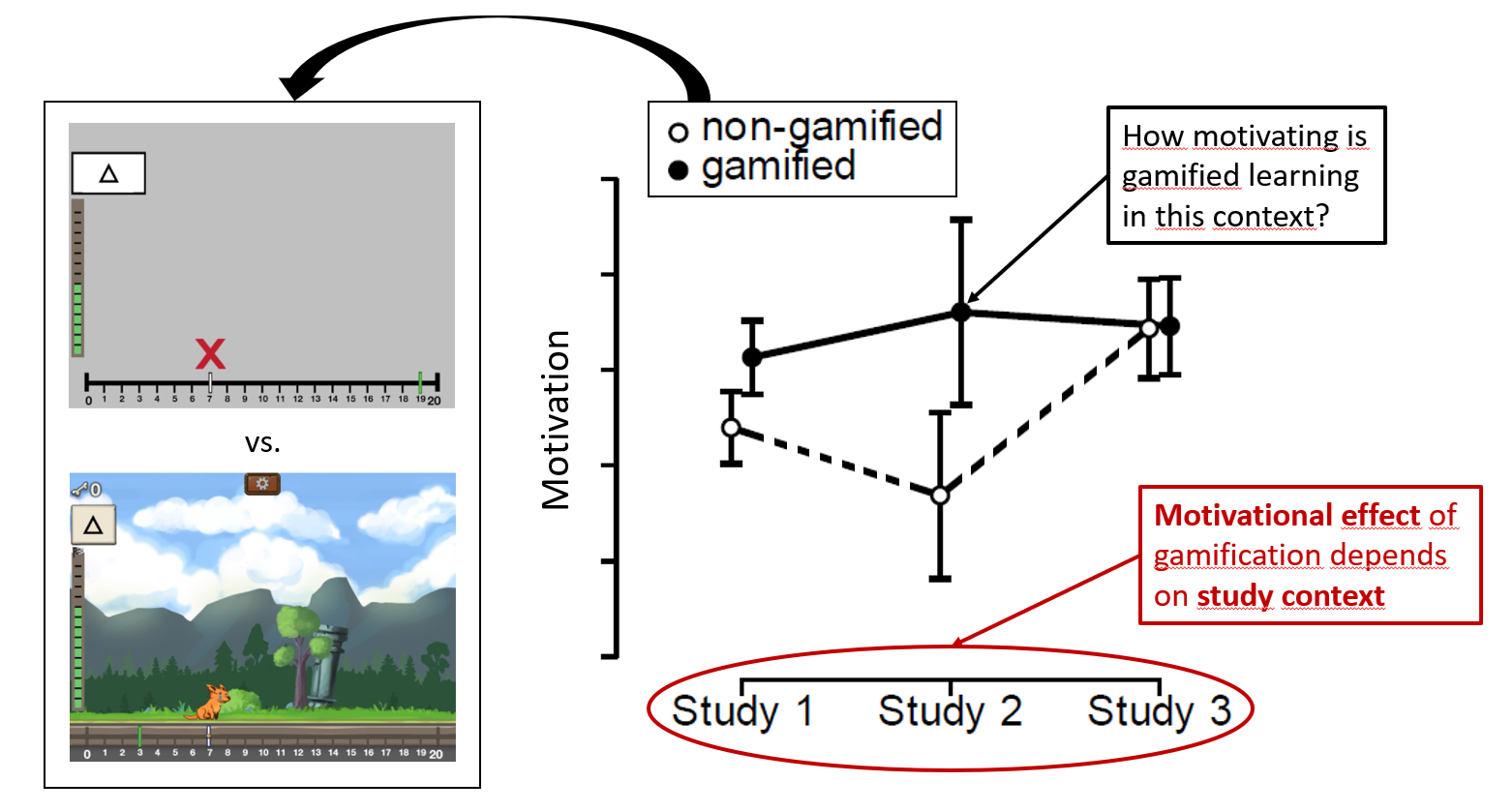We are excited to share another study, published recently in Frontline Learning Research. In this study, we explore how the context of an experiment (e.g., conducted in the laboratory or online) influences cognitive and motivational effects of gamified learning.
What is it about?
The study investigates how the context in which gamified learning takes place influences its effectiveness. Specifically, it compares cognitive and motivational outcomes of gamified learning across three different settings: two online studies and one laboratory study, all using the same kind of associative learning task.
What did we find?
The study found that the positive effect of gamification on learners’ motivation depends considerably on the context, with gamification being more effective in online settings compared to a laboratory environment. In contrast, other outcomes (like how much people learn) appear relatively more stable across contexts, with only subtle contextual influences suggested by our findings.
Why does it matter?
Our findings highlight the importance of understanding the boundary conditions of gamified learning. Context plays a critical role in determining the motivational benefits of gamification, which has implications for designing effective educational interventions.
What does this mean in practice?
To optimize the benefits of gamified learning, educators and developers should be aware of the influence of the specific learning environment when designing interventions. However, further research is needed to better understand the specific conditions under which gamified learning is most effective and the types of outcomes it can reliably achieve.
Here the link to the full study: https://doi.org/10.14786/flr.v13i3.1653
